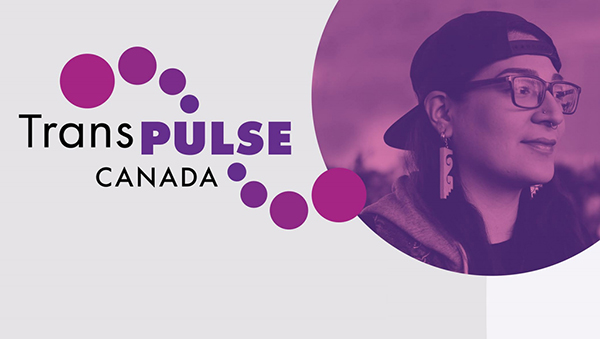For transgender and non-binary Canadians, accessing primary, emergency and gender-affirming health care can be a challenge.
In 2019, a team of researchers across Canada led by Schulich Medicine & Dentistry Professor Greta Bauer, PhD, and Ayden Scheim, PhD’17, undertook a massive nationwide survey to get a clearer picture on the health and wellbeing of trans and non-binary people across the country.
 Called
Trans PULSE Canada, the research project is the first of its kind to collect all-ages data on trans and non-binary health for every province and territory in the country. The project included collecting survey data from nearly 3,000 respondents through a wide-range of questions related to mental, physical and psychological health, as well as access and barriers to care.
Called
Trans PULSE Canada, the research project is the first of its kind to collect all-ages data on trans and non-binary health for every province and territory in the country. The project included collecting survey data from nearly 3,000 respondents through a wide-range of questions related to mental, physical and psychological health, as well as access and barriers to care.
Bauer, who led a similar survey specific to Ontario in 2009, called Trans PULSE Ontario, says the national data is important to identify variation in health and health care access, because most health care in Canada is organized through provincial systems and policies.
“Provinces or territories other than Ontario have not had any all-ages survey data on the broader health of trans or non-binary people, so for some regions, like Saskatchewan, this survey will provide the very first findings on key health and health care indicators for this population,” Bauer said.
Scheim, the co-principal investigator on the project, is a Western alumnus and an Assistant Professor at Drexel University and Affiliate Scientist at the Li Ka Shing Knowledge Institute of St. Michael’s Hospital, Unity Health Toronto. He says the inclusion of non-binary people in the Canada-wide survey was an important addition.
“We wanted to be able to look at differences in trans and non-binary health within communities depending not only on where they are living but also based on the intersecting identities or experiences they have,” he said.
The goal was to gather data not just about the trans community as a monolithic group, but to understand the differences in peoples’ varied experiences.
For Bauer and her team, living the value of diversity has meant not only giving voice to a population that has traditionally been stigmatized, but has also meant incorporating members of other diverse communities as an integral part of the research team. Their diverse contribution to the survey design also meant their experiences were reflected in the research questions in order to get a fulsome picture of the health and wellbeing of trans and non-binary people across the nation.
 The Trans PULSE Canada team identified nine priority populations from the outset including older people, youth, sex workers, non-binary people, immigrants, those living with disabilities, Indigenous gender-diverse people, racialized people and those in rural or remote areas.
The Trans PULSE Canada team identified nine priority populations from the outset including older people, youth, sex workers, non-binary people, immigrants, those living with disabilities, Indigenous gender-diverse people, racialized people and those in rural or remote areas.
“We then worked with people who were parts of those groups to make sure that our survey included questions that were relevant for the issues that they were facing. For us, that’s meant a very large research team, who are involved in different capacities and really reflect the diversity of community and academic knowledge,” she said.
Over the next year, the team will be publishing a series of 10 reports based on the data beginning with a national overview, and then focusing in on each of the priority groups.
“These results of the first report highlight what health services researchers already know, that general availability of health care is only the first step in accessibility,” said Bauer, PhD. “Some of our future research will focus on the roles different factors play in accessing health care, for example physician knowledge or anticipated discrimination.”